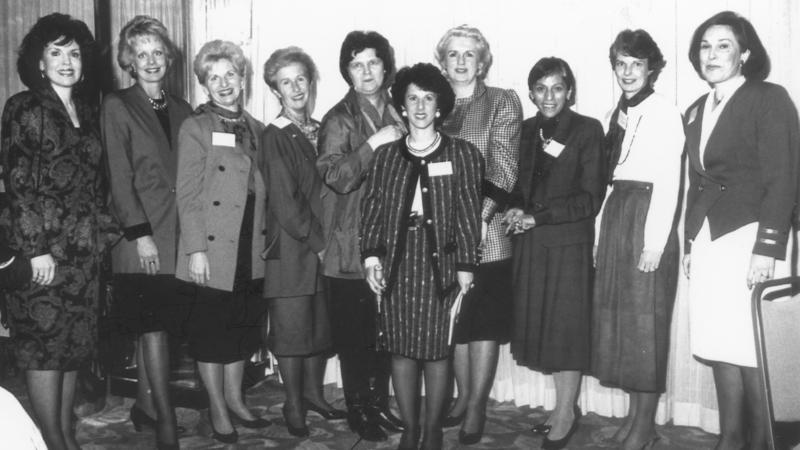Melissa Wylie, Bizwomen reporter Oct 25, 2016, 11:48am EDT
The early days of NAWBO, an organization founded to help women business owners around the country at a time when they couldn’t get a loan with a male cosigner.
Less than 30 years ago, women who wanted a business loan in many U.S. states were required to provide a signature from a male relative.
 That archaic requirement might still be in place if not for the Women’s Business Ownership Act of 1988. Today marks the 28th anniversary of that bill becoming law, one that opened up doors for female business owners and changed the landscape of entrepreneurship.
That archaic requirement might still be in place if not for the Women’s Business Ownership Act of 1988. Today marks the 28th anniversary of that bill becoming law, one that opened up doors for female business owners and changed the landscape of entrepreneurship.
The National Association of Women Business Owners was an instrumental proponent of the bill, also known as HR 5050.
“HR 5050 helped ensure that women entrepreneurs were being accurately counted for the economic contribution they were making,” NAWBO National Board Chair Teresa Meares said in an email.
Terry Neese, who became NAWBO president in 1990, previously told Bizwomen about her experience trying to borrow money to grow her business in the 1970s.
“Of course I couldn’t without my husband signing and I was not going to do that,” Neese said.Neese was frustrated that her gender dictated how far she could grow her business on her own. “[Instead] I just refused to borrow money,” she said.
Neese was part of a group of NAWBO members who traveled around the country promoting fair access to capital for female entrepreneurs, eventually recruiting former New York congressman John LaFalce to author HR 5050 and get rid of the male cosigner requirement.
The Women’s Business Ownership Act also mandated the creation of the National Women’s Business Council, a group of female entrepreneurs that reports annually to the president and Congress.
“It’s hard to imagine that less than three decades ago, women were required to have a male relative sign their business loan, which makes the strides that women business owners have made particularly impressive,” Esther Morales, executive director of the National Women’s Business Council, said in an email.
Women own more than 9.1 million business in the U.S., according to NAWBO, with 2.9 million businesses owned by women of color. One in five million-dollar businesses are woman-owned.
Without the Women’s Business Ownership Act, these numbers would likely be much different.
The legislation also directed the government to collect information on all women-owned businesses, including larger C corporations instead of just sole proprietorships. This challenged the stereotypical notion that women only ran small enterprises, such as selling handmade products and crafts.
“The anniversary of this legislation needs to be remembered, so that we are all reminded of how far women have come and how large a role they play in this nation’s economy,” Meares said. “When women business owners do well, the economy does well.”

